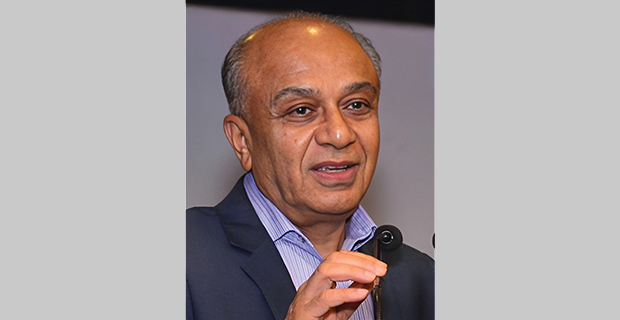LEADING IN TO THE FUTURE
Strive not to be a success, but rather to be of value.
-Albert Einstein
It took a masterly genius like Einstein to figure out that those who matter in life try to be of value. Success chases them, and not the other way around.
In an uncomplicated way, Vishwa Mohan Bansal epitomizes this saying of Albert Einstein. In fact, it has been the defining philosophy of his entire life, and success has chased him wherever he’s gone. One first had a sense of this overarching philosophy when this writer interacted with this go-getter bureaucrat over several lovely cups of lemon tea during his distinguished days with the Delhi Development Authority (DDA) and the Inter-State Bus Terminus (ISBT) in the early 1990s.
During his stellar career over five decades starting in the early 1970s, Mr Bansal’s donned many hats and received many a feather in his cap. Still, wherever he’s been, he’s not forgotten one principle—to be of value to others. Success, unsurprisingly, has chased him wherever he’s gone. Today he’s the Chairman of the New Delhi Institute of Management (NDIM), a premier B-school in India. But he took his time before settling in this august institution founded by his father, the late Shri Jaswant Rai Bansal, who had the distinction of being the senior-most member of the UPSC, Chairman of the Punjab Service Commission, and Chairman of the Recruitment Boards at the National Bank for Agricultural and Rural Development (NABARD) and the State Trading Corporation (STC) of India.
JOINING PUBLIC SERVICE
Significant political and economic shifts were taking place in the world in 1971. In the sub-continent, India inflicted a humiliating defeat on West Pakistan and liberated East Pakistan, which became Bangladesh. There was a monumental shift when Intel released the world’s first microprocessor in the same year that would forever change the way technology shaped the world. The same year, V.M. Bansal chose to step away from his family firm—National Industries and Hind Insulated Cable—and gain experience in public life. He started as City Magistrate Patiala. By 1974 was the Sub-Divisional Magistrate at Sunam, Punjab, a role in which he did not shy from taking on the state’s most powerful political families. He took over north India’s richest Kaali temple from old established mahants at 25.
Greek philosopher Aristotle said, “You’ll never do anything in this world without courage.” V M Bansal demonstrated ample grit and courage at an early age. At 27, he was taking on the welfare of the labor unions of the Punjab State Electricity Board as the OSD that had over 80,000 employees, refusing steadfastly to succumb to their threats and demands. A year later, he was settling flash strikes by dreaded transport unions when he was an additional managing director with Pepsu Roadways. As he kept becoming of significant value to others, success kept chasing him, and not the other way around. Soon he was made a special magistrate for the entire Punjab tracking transport violations.
The year was 1982. With Appu as the famous mascot, New Delhi was set to host the Asian Games after a gap of 31 years. On the ground, things needed to get delivered and accomplished speedily. At the same time, large trade unions that were more than capable of putting a spanner in the works and disrupting vital Games-related projects needed to be handled with firmness and dexterity, in equal measure. That is where the Government saw value in requisitioning the services of V M Bansal, who was quickly drafted into the DDA. His academic accomplishments also no doubt helped his cause. He was among a few urban career management experts and administrators with degrees in engineering, law, journalism, and an MBA. As a reward, he was sent for 3 months of advanced international learning at RIPA, UK











Comments.